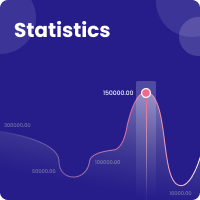Optimization of non-stationary Stackelberg models using a self-adaptive evolutionary algorithm
Abstract
Stackelberg’s game models involve an important family of Game Theory problems with direct application on economics scenarios. Their main goal is to find an optimal equilibrium between the decisions from two actors that are related one to each other hierarchically. In general, these models are complex to solve due to their hierarchical structure and intractability from an analytical viewpoint. Another reason for such a complexity comes from the presence of uncertainty, which often occurs because of the variability over time of market conditions, adversary strategies, among others aspects. Despite their importance, related literature reflects a few works addressing this kind of non-stationary optimization problems. So, in order to contribute to this research area, the present work proposes a self-adaptive meta-heuristic method for solving online Stackelberg’s games. Experiment results show a significant improvement over an existing method.
References
H. von Stackelberg, The Theory of the Market Economy. Oxford University Press, 1952.
B. Colson, P. Marcotte, and G. Savard, ‘Bilevel programming: A survey’, 4OR, vol. 3, no. 2, pp. 87–107, 2005.
B. Colson, P. Marcotte, and G. Savard, ‘An overview of bilevel optimization’, Ann. Oper. Res., vol. 153, no. 1, pp. 235–256, 2007.
X. León and L. Navarro, ‘A Stackelberg game to derive the limits of energy savings for the allocation of data center resources’, Futur. Gener. Comput. Syst., vol. 29, no. 1, pp. 74–83, 2013.
P. Nie, ‘A note on dynamic Stackelberg games with leaders in turn’, Nonlinear Anal. Real World Appl., vol. 13, no. 1, pp. 85–90, 2012.
T. Nakamura, ‘One-leader and multiple-follower Stackelberg games with private information’, Econ. Lett., vol. 127, pp. 27–30, 2015.
B. Øksendal, L. Sandal, and J. Ubøe, ‘Stochastic Stackelberg equilibria with applications to time-dependent newsvendor models’, J. Econ. Dyn. Control, vol. 37, no. 7, pp. 1284–1299, 2013.
D. Wang, G. Du, R. J. Jiao, R. Wu, J. Yu, and D. Yang, ‘A Stackelberg game theoretic model for optimizing product family architecting with supply chain consideration’, Int. J. Prod. Econ., vol. 172, pp. 1–18, 2016.
O. A. Wahab, J. Bentahar, H. Otrok, and A. Mourad, ‘A Stackelberg game for distributed formation of business-driven services communities’, Expert Syst. Appl., vol. 45, pp. 359–372, 2016.
L. Arboleda-Castro, O. Cedeño-Fuentes, I. Jacho-Sánchez, and P. Novoa-Hernández, ‘Un enfoque computacional evolutivo para problemas de competencia de Stackelberg dinámicos (An evolutionary computational approach for the dynamic Stackelberg competition problems)’, Enfoque UTE, vol. 7, no. 2, pp. 10–24, 2016.
I. Boussaïd, J. Lepagnot, and P. Siarry, ‘A survey on optimization metaheuristics’, Inf. Sci. (Ny)., vol. 237, pp. 82–117, 2013.
P. Novoa-Hernández, C. C. Corona, and D. A. Pelta, ‘Self-adaptive, multipopulation differential evolution in dynamic environments’, Soft Comput., vol. 17, no. 10, pp. 1861–1881, Mar. 2013.
E.-G. Talbi, ‘A Taxonomy of Metaheuristics for Bi-level Optimization’, in Metaheuristics for Bi-level Optimization, vol. 482, E.-G. Talbi, Ed. Springer Berlin Heidelberg, 2013, pp. 1–39.
D. Sun, R. F. Benekohal, and S. T. Waller, ‘Bi-level programming formulation and heuristic solution approach for dynamic traffic signal optimization’, Comput. Civ. Infrastruct. Eng., vol. 21, no. 5, pp. 321–333, 2006.
M. Linnala, E. Madetoja, H. Ruotsalainen, and J. Hämäläinen, ‘Bi-level optimization for a dynamic multiobjective problem’, Eng. Optim., vol. 44, no. 2, pp. 195–207, 2012.
R. Storn and K. Price, ‘Differential Evolution - A Simple and Efficient Heuristic for global Optimization over Continuous Spaces’, J. Glob. Optim., vol. 11, no. 4, pp. 341–359, 1997.
Z. Chen and Z. Song, ‘Dynamic portfolio optimization under multi-factor model in stochastic markets’, OR Spectr., vol. 34, no. 4, pp. 885–919, 2012.
T. T. Nguyen, S. Yang, and J. Branke, ‘Evolutionary dynamic optimization: A survey of the state of the art’, Swarm Evol. Comput., vol. 6, no. 0, pp. 1–24, 2012.
E. Alba, A. Nakib, and P. Siarry, Metaheuristics for Dynamic Optimization, vol. 433. Springer Berlin Heidelberg, 2013.
P. Novoa-Hernández, C. C. Corona, and D. A. Pelta, ‘Self-adaptation in dynamic environments - a survey and open issues’, Int. J. Bio-Inspired Comput., vol. 8, no. 1, pp. 1–13, 2016.
P. Novoa-Hernández, B. O. Bayas, J. M. Oviedo, A. Puris, M. Menace, and C. Cruz Corona, ‘Impacto de la auto-adaptación en ambientes dinámicos con frecuencia de cambio variable’, Investig. Operacional, vol. 37, no. 3, pp. 292–302, 2016.
S. Meyer-Nieberg and H.-G. Beyer, ‘Self-Adaptation in Evolutionary Algorithms’, in Parameter Setting in Evolutionary Algorithms, vol. 54, F. Lobo, C. Lima, and Z. Michalewicz, Eds. Springer Berlin / Heidelberg, 2007, pp. 19–46.
A. Sinha, P. Malo, and K. Deb, ‘Test Problem Construction for Single-Objective Bilevel Optimization’, Evol. Comput., vol. 22, no. 3, pp. 439–477, Dec. 2014.
P. Novoa-Hernández, D. A. Pelta, and C. C. Corona, ‘Improvement strategies for multi-swarm PSO in dynamic environments’, in Studies in Computational Intelligence, 2010, vol. 284, pp. 371–383.
P. Novoa-Hernández, C. C. Corona, and D. A. Pelta, ‘Efficient multi-swarm PSO algorithms for dynamic environments’, Memetic Comput., vol. 3, no. 3, pp. 163–174, 2011.
S. García, D. Molina, M. Lozano, and F. Herrera, ‘A study on the use of non-parametric tests for analyzing the evolutionary algorithms’ behaviour: a case study on the CEC’2005 Special Session on Real Parameter Optimization’, J Heuristics, vol. 15, pp. 617–644, 2009.










